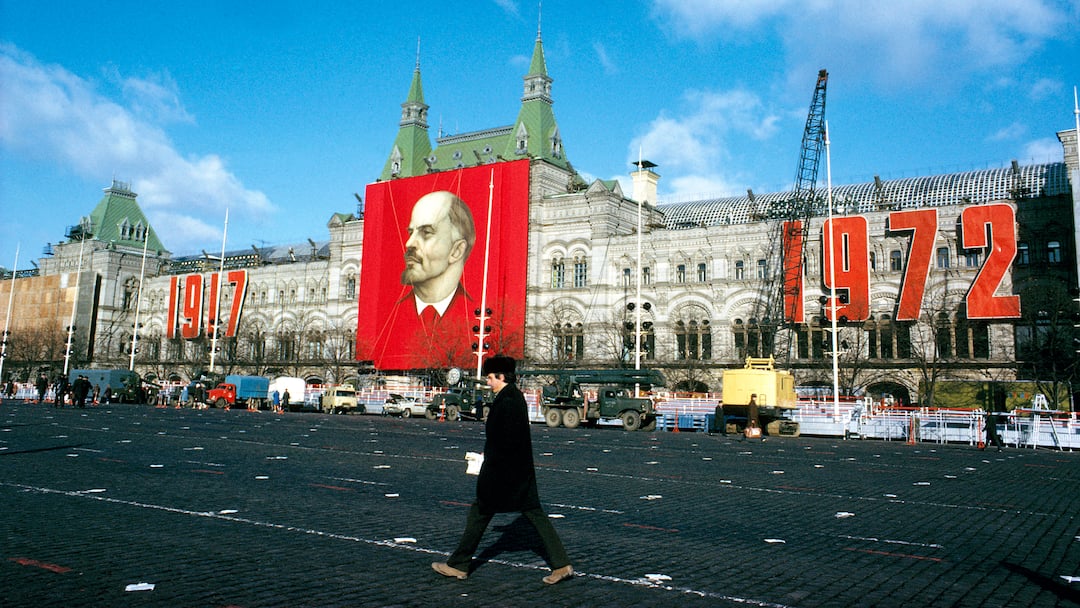Pierre Plouffe is part of the folklore of the series of the century. However, he never put his skates on.
Plouffe need not be looked for among the attackers who were the Canadian team’s shock force. Not even among the defenders or guards who formed the wall. He wasn’t on the reserve list either.
His thing was more water skiing, a passion that still drives him today, at the age of 73. He even reached the pinnacle of the discipline when he represented the country at the 1972 Olympics, having won the World Cup in Tahiti the year before.
He even coached the national team until 1989 and still manages the water sports center named after him at Lac Tremblant.
Despite his sporting achievements, however, nothing got Pierre Plouffe as excited as ice hockey. A die-hard maniac and friend of several of the players who made Canada famous in the 1970s, it was unthinkable for him not to not encourage Team Canada when they traveled to Moscow for the final four games of the 1972 series.
“I’ve always followed hockey avidly. My parents were looking for tickets for this series and as I knew several players they asked me to get them some. I told my parents that if I get them tickets, they’ll buy me one in return,” says the never-ending bon vivant.
Another world
So Plouffe found himself in Russia, along with 3,000 other ardent Canadian supporters, at the heart of the big event.
Armed with his bugle, he quickly discovered a very different reality than at home as he proudly began playing the role of the wolf in the sheepfold.
“I saw pretty quickly that it was stirring. I had tied my Canadian flag to a hockey stick and started playing the trumpet in my hotel room. I played O Canada on the bugle while opening the window and the Russians didn’t like it. Let’s say I’ve had a few cocktails on my nose. I didn’t know, but I was later told that the sound of the bugle meant a revolution in this country,” explains Plouffe.
The latter was cheerful by nature and had no intention of conforming to the customs of the country.
“The Muscovites were very silent. There was no good humor on their faces. Someone who got there to celebrate was badly received. It was still the Iron Curtain. The only time a large group of people had slept there before us was Germans one night for an East German soccer game. There 3000 Canadians landed for a while and it surprised them. They were on guard,” he says.
From arena to prison
Despite the prevailing austerity measures, Pierre Plouffe remained stubborn. During games in the stands, when his bugle sounded, he quickly managed to hide the instrument without too much difficulty. Rather, events degenerated into the post-game celebrations. After the Canadians won their second game in Moscow, the atmosphere quickly turned to celebration.
Despite the strict house ban, Plouffe wanted to join the players and drink with them.
“With a few tips to the taxi drivers like rubber or nylon stockings, everything worked out. You have to remember how these people were kept in complete ignorance,” he recalls.
After a few drinks, the spirit of distrust manifested itself.
“Pete Mahovlich wanted me to get him a scotch and the woman at the bar told me it was closed. I got stubborn and hit an empty champagne bottle, causing some glasses to fall. A guy twice my height picked me up like a piece of paper. I started trying to push him and it didn’t work that well. They put me in jail. I remember how I understood absolutely nothing in the interrogation room!
A good fright
If he laughs about it now, Plouffe got himself into trouble back then. To the point where local authorities sentenced him to five years in Siberia.
“They wanted to set an example for Canadians. They were tired of our party mood and the noise we were making,” says the man, who ended up spending three days behind bars before the Canadian embassy managed to release him. After watching the third game on Soviet soil on TV, Plouffe was able to find his place in the arena for the final game of the series…with a strict ban on demonstrations!
“Except for Paul Henderson’s winning goal, I got up and they put me down pretty quickly. They took me back to jail and I found it a lot less weird there. I’d be lying if I said I didn’t yell. It was my mother who called the embassy. The intervention of the players then helped me get out.
“I found out later that the Russians had even investigated whether it was true that I was an international athlete who represented my country. A few hours later they picked me up and told me not to leave the hotel. They weren’t gone when I jumped into a taxi to celebrate with the players,” laughs the irrepressible drill.
lasting memories
Five decades later, Pierre Plouffe does not escape. He has now gained the wisdom that allows him to see his mistakes.
“I was lucky in life to compete in World Championships and Olympic Games. I’ve competed in several sporting events, including a few Super Bowls. There is nothing comparable to what I experienced in Russia. My adventures made the journey more complex than I would have liked, but I learned. I never blamed the Russians for what happened to me. It was me who broke the rules of their country,” he concludes.
Plouffe hasn’t scored in this series of the century, but his vocal support for the Canada team certainly earned him an assist.
Unwavering support from Canadian fans
Photo Credit: Photo Getty Images
After a bitter defeat in Vancouver in game four of the Century Series, Canada’s players feared they had lost the support of their compatriots. When they were joined by 3,000 supporters of the country to support them in Moscow, doubts were quickly dispelled.
From the start of the first game on enemy territory, the Canadian crowd proudly sang the national anthem for about fifteen minutes without stopping.
Armed with that support, the Canadians built a 3-0 and 4-1 lead before collapsing. Despite everything, at the end of the game, the fans reiterated their support and shouted the O Canada as the team left the ice and trailed 3-1-1 in the series.
“The players felt supported and nobody was allowed to be lazy there,” says Pierre Plouffe, looking back on the events.
Well felt by love
That token of love, even if hopes of winning the series seemed minimal at the time, spurred players to then help them sign three consecutive triumphs.

Photo Credit: Photo Getty Images
“It was depressing to be in Moscow in 1972,” recalls Phil Esposito.
“No one was allowed to go out anywhere, we couldn’t see anyone or go to a restaurant. What really helped us was the amount of Canadian fans that came out to support us there. The support was so loud. We also received countless telegrams and posted them in the corridors to the changing rooms. The walls were covered. It was reassuring,” he continued.
Not to mention the whole of Canada was glued to the TV at the same time spying on the team’s capabilities.
“In Russia you couldn’t see that everyone in the country was watching young people skip school and people quitting their jobs. When we got home we understood. It’s incredible when you think about it,” smiles Yvan Cournoyer.

Avid beer trailblazer. Friendly student. Tv geek. Coffee junkie. Total writer. Hipster-friendly internet practitioner. Pop culture fanatic.







